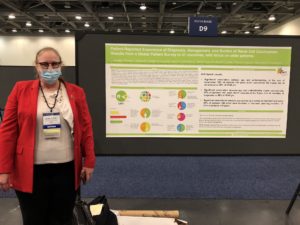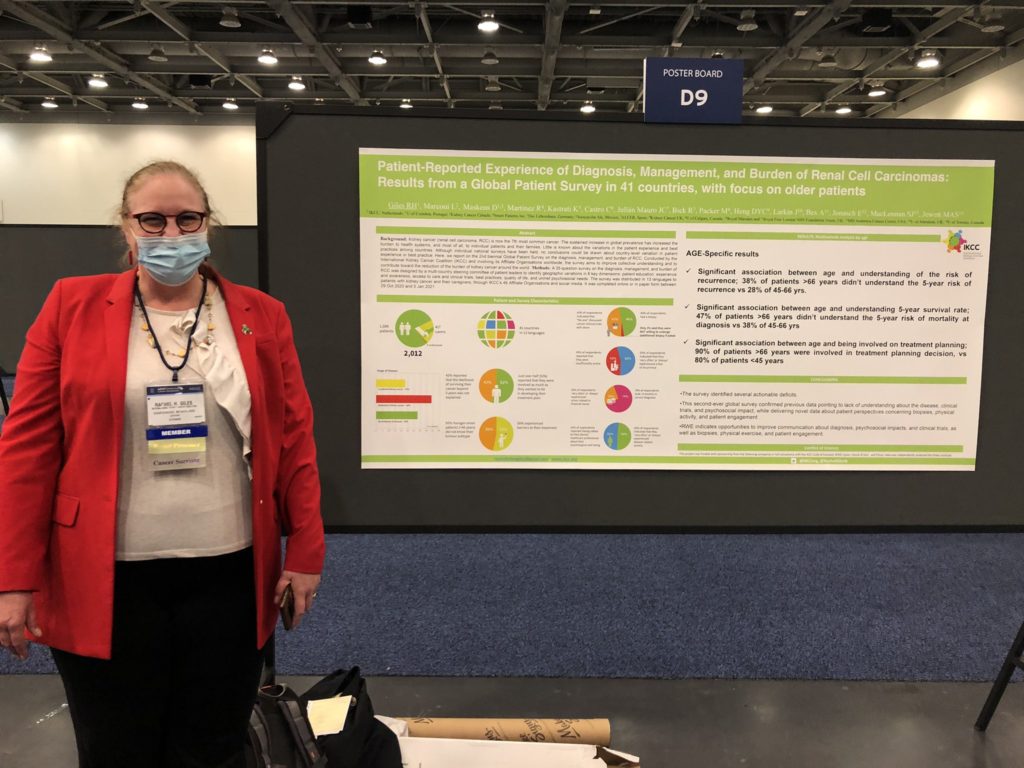
The Legacy
April 11, 2024
This is a guest post by Christopher Wood, Jr, son of the KCA’s late Board Chair and friend, Dr. Christopher…
Read More
Below are some of the research highlights from the American Society of Clinical Oncology (ASCO)’s 2022 Genitourinary Cancers Symposium, held on February 17-19 in San Francisco, California.

Patients and families don’t always understand their diagnosis
The International Kidney Cancer Coalition conducted a survey of the kidney cancer community that showed that patients and families understand their diagnosis and their options very differently. Among over 2,000 survey responders from 41 countries, many patients did not understand their prognosis with 42% reporting that the 5-year survival likelihood wasn’t explained. Older patients (those over 65 years) experienced more barriers to quality care, understood their disease less well, and had to wait longer for a diagnosis. Only about a third (31%) of patients were invited to participate in a clinical trial, with the majority of respondents reporting no such discussions were had with them. The survey results showed how kidney cancer continues to burden patients and families and more research and community-oriented work needs to be done to improve education and quality of life. Reports for individual countries are available at the IKCC’s website. Read the abstract.
Adjuvant pembrolizumab continues to perform well
Adjuvant pembrolizumab, which means the immunotherapy pembrolizumab is administered after a nephrectomy surgery to remove a kidney, continues to perform well at 30 months of follow-up in the KEYNOTE-564 trial. Disease-free survival (DFS) was the main benefit for pembrolizumab-treated patients compared with placebo, and this was true for intermediate high risk, high risk, and those with no evidence of disease. DFS was also seen across subgroups of patients including males and females and high- and low-grade tumors, although people with a higher grade, more abnormal looking tumor experienced the greatest DFS benefit. Overall survival also trended towards more benefit with pembrolizumab. When KEYNOTE-564 data was first published, it established a role for adjuvant pembrolizumab in clear cell RCC and this was codified with the FDA’s approval of pembrolizumab for this purpose in November 2021. Read the abstract.
Neoadjuvant IO/TKI therapy looks promising
The NeoAvAx trial helped increase understanding of the role of neoadjuvant (before surgery) therapy – particularly the immune/TKI therapy combination – to decrease tumor size prior to surgery. Prior research on this topic has been mixed and nothing is FDA-approved for use in this situation. In this phase 2 trial, 40 patients with localized RCC at high risk of relapse after nephrectomy were given avelumab – the immunotherapy – along with axitinib – the TKI inhibitor – for up to 12 weeks before they had surgery, with the dosage increased incrementally if patients could tolerate it. Some patients did have reduced absolute tumor size but this translated to an overall response rate of 30% with a median 20% of patients who had a decrease in tumor size. Read the abstract.
1 thought on “Kidney cancer highlights from ASCO GU 2022”
Good stuff out there. I’ll be bookmark this informative content into my bucket.